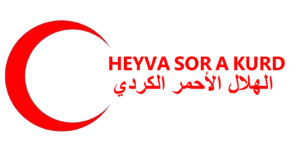International Midwives Day
Every day, the Kurdish Red Crescent center in the Abu Khashab camp, located east of Deir ez-Zor, receives about 120 IDPs. Each clinic in the center (internal medicine, pediatrics, and gynecology) sees around 40 cases daily, which range from regular check-ups to emergency care. They provide medical services and appropriate examinations for all age groups, along with distributing medications, while ambulance services are on standby 24/7 for any emergency situations.





With the spread of seasonal diseases that increase during the winter, and to follow up on the health status of the displaced people, our medical teams continue through mobile clinics to go to the shelters of the displaced people of Al-Shahba and Afrin in the city of Al-Hasakah, where primary health care services are provided, which include examinations for internal diseases, children and women, in addition to the provision of medicines and health awareness for the displaced.




Besides to the health services offered to displaced individuals from the Al-#Shahba and Tal #Rifaat. The #Kurdish_Red_Crescent Organization has started providing relief services. Today, after assessing the number of families residing in shelters in Al-Hasakah city , our teams distributed essential items such as diapers, baby formula, and hygiene kits to 144 displaced families.





Since the early morning hours, our medical teams have continued to provide medical services to tens of thousands of displaced people from the areas of Tal Rifaat, al-Shahba and the countryside of Aleppo, who are present in the gathering places in the cities of Raqqa and Tabqa. The efforts of these teams reflect our steadfast commitment to meeting the needs of these displaced people and providing them with the necessary health care in light of the difficult circumstances they are living in.






Qamishlo city /Al-Antarya neighborhood
A1- 00963 935 288 541
A2- 00963 949 359 179
A3- 00963 949 356 870
A4- 00963 932 125 933
